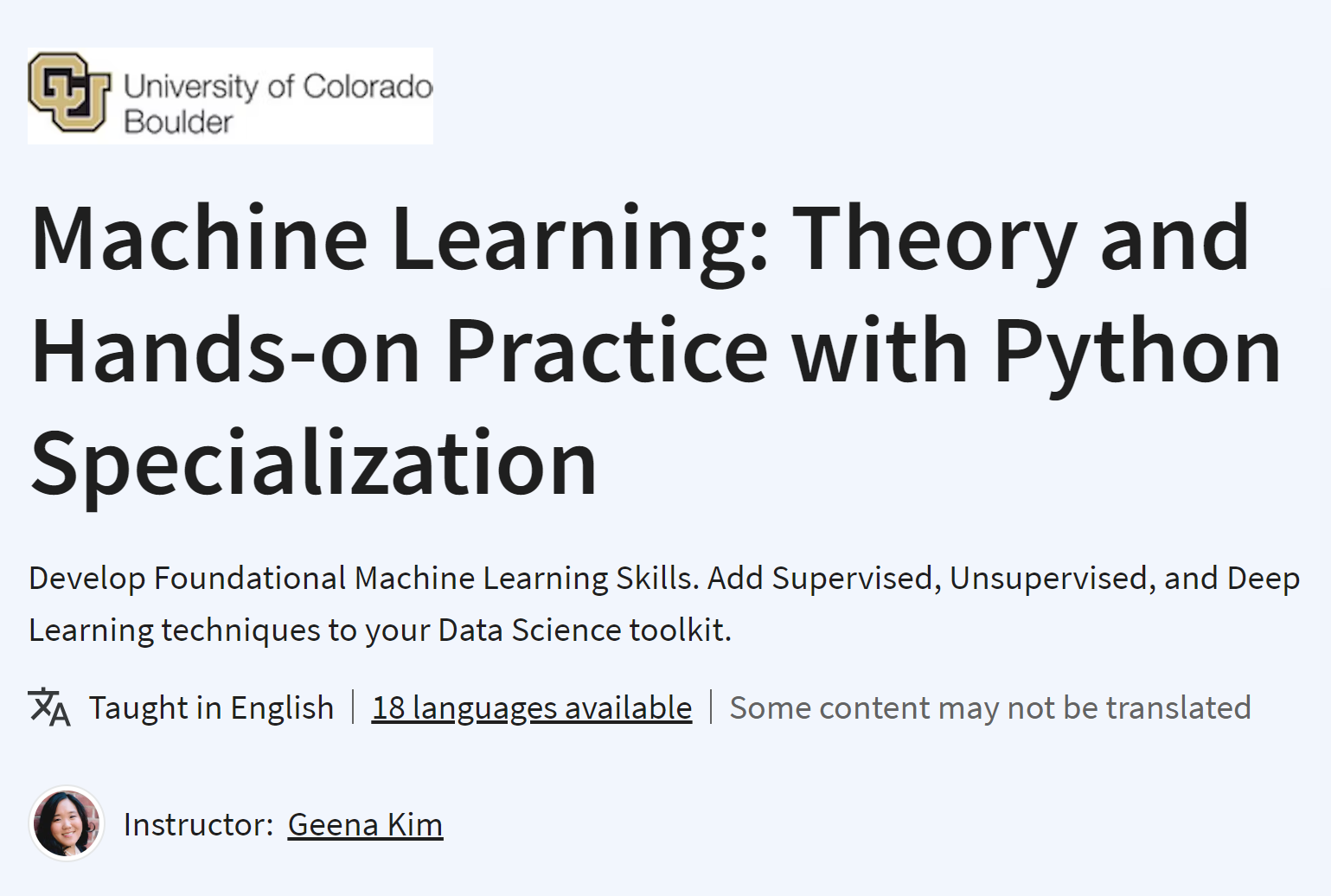What you'll learn
Explore several classic Supervised and Unsupervised Learning algorithms and introductory Deep Learning topics.
Build and evaluate Machine Learning models utilizing popular Python libraries and compare each algorithm’s strengths and weaknesses.
Explain which Machine Learning models would be best to apply to a Machine Learning task based on the data’s properties.
Improve model performance by tuning hyperparameters and applying various techniques such as sampling and regularization.




.png)




.png)















.png)





.png)












0 Comments:
Post a Comment